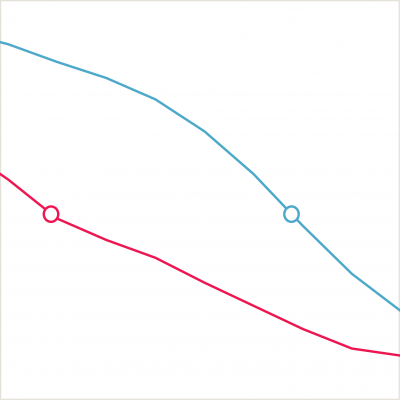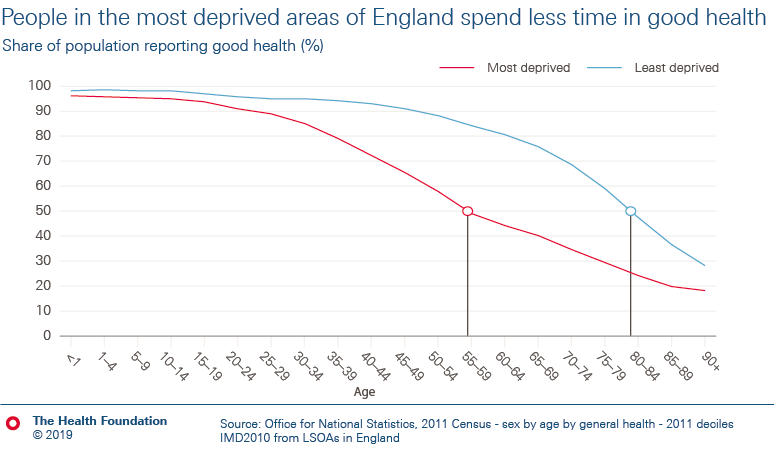People in the most deprived areas of England spend less time in good health
26 September 2019

Key points
- Analysis of 2011 Census data shows that while the proportion of people reporting good health declines with age, this decline begins at younger ages in the most deprived parts of England.
- By the time they reach age 55-59, only 50% of people living in the most deprived local areas report good health. In contrast, in the least deprived areas, 85% of people in this age bracket still report good health. In these areas, the share of people reporting good health doesn’t drop to 50% until age 75-79 – a whole 20 years later.
- Improving health should involve action across people's whole lives, through strategies that improve the living conditions experienced by all age groups and acknowledge local inequalities.
Improving the length of time people live in good health has rightly been the focus of much recent policy debate. In 2018 the government set out a mission as part of the Ageing Society Grand Challenge in the Industrial Strategy to ‘ensure that people can enjoy at least five extra healthy, independent years of life by 2035, while narrowing the gap between the experience of the richest and poorest’.
Healthy life expectancy measures are effectively averages across the life course. When discussing such measures in relation to improving health, it is often assumed that the years spent in poor health (the difference between life expectancy and healthy life expectancy) occur at older ages. But it is important to note that this is not always the case. Periods of poor health may occur at any age, including working age. This occurs most often for those in the most deprived areas.
This chart not only shows how the share of the population reporting good health deteriorates as people age, but also indicates that actions to improve health should occur across the life course. Only 50% of people living in the most deprived 10% of local areas in England report good health by age 55–59. In the 10% least deprived of local areas the same proportion report poor health a whole 20 years later, at ages 75–79. This is of concern as having an unhealthier working age population may negatively affect an area’s productivity.
It is therefore important that strategies to improve living conditions for all age groups, not just the elderly, should be the focus of those working to improve the nation’s health and reduce inequalities in the amount of time spent in good health. Such improvement needs a long-term, whole-government approach, as outlined in our recent publication Creating healthy lives.
Further reading
Work with us
We look for talented and passionate individuals as everyone at the Health Foundation has an important role to play.
View current vacanciesThe Q community
Q is an initiative connecting people with improvement expertise across the UK.
Find out more


